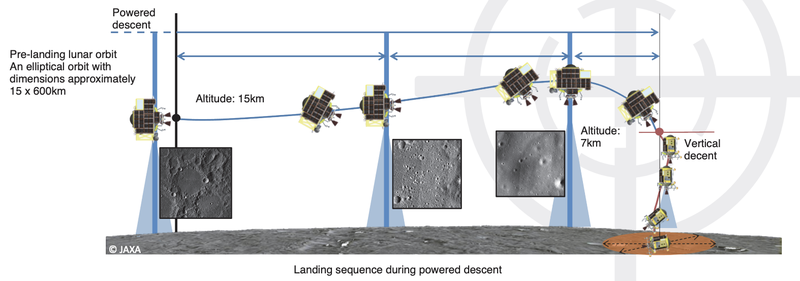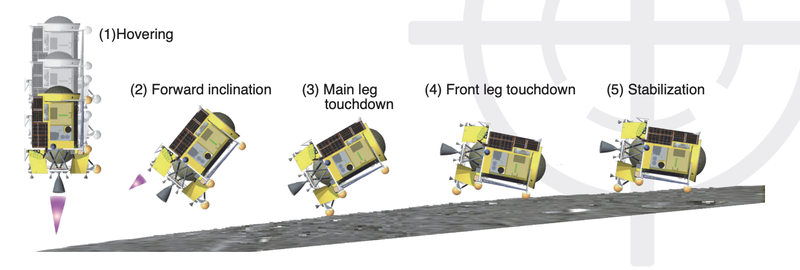Artist’s depiction of SLIM.
Japan chooses to go to the Moon, and it’s doing so with a strong emphasis on accuracy. With SLIM, the nation’s space agency is aiming for an autonomous, high-precision landing within an impressive 328 feet (100 meters) of its intended target inside Shioli Crater.
SLIM is expected to perform its soft landing on Friday, January 19 at 10:20 a.m. ET (Saturday at 12:20 a.m. Japan time). Space agency JAXA is livestreaming the event, with the broadcast starting at 9 a.m. ET. You can catch the action at the JAXA’s YouTube channel or via the livestream below.
Read more
This includes an advanced guidance and navigation system, equipped with preloaded maps, radar, and image processing algorithms, to guarantee precise trajectory accuracy. It also boasts a high-performance propulsion system that allows for meticulous adjustments to its approach vectors, ensuring SLIM’s direction and speed are finely tuned as it approaches the lunar surface.
The SLIM project began in 2013, but it’ll all come down to a delicate landing procedure that should take no longer than 20 minutes from start to finish. For these harrowing 20 minutes, mission controllers on Earth will be in a state of powerlessness, relying on SLIM’s autonomous functions to successfully complete the journey.

An illustration of the landing procedure.
The landing procedure will initiate at around 10 a.m. ET, with SLIM beginning its descent from an altitude of 9.3 miles (15 kilometers) while moving at a daunting 3,800 miles per hour (1,700 meters per second). The target ellipse measures roughly 328 feet by 328 feet, or 100 meters by 100 meters.
Its target, Shioli Crater, is about 984 feet (300 meters) across and is located within the broader expanse of the Mare Nectaris, meaning “Sea of Nectar.” This low-altitude region features a relatively constant slope of 15 degrees or less, necessitating the use of “two-step landing” method, in which SLIM’s main landing gear will touch the surface first and then rotate forward for further stabilization.


SLIM will attempt a “two-step landing” method, in which the primary landing gear first touches the lunar surface and then rotates forward to stabilize.
The main purpose of the mission is to test the new precision landing technology, which, if successful, could lead to pinpoint landings on the Moon but also at other locations, such as the two petite Martian moons or other small solar system objects. That said, SLIM is not arriving empty handed; the lander is equipped with a thermometer, radiation detector, and a device for measuring slopes and elevation. It’ll also attempt to deploy a pair of small rovers, one of which was co-designed by Tomy, the Japanese firm responsible for early Transformers toys.
SLIM launched atop Mitsubishi’s H-IIA rocket on September 6, 2023, from Tanegashima Space Center, sharing the ride with Japan’s XRISM X-ray telescope, which is now operational.
For more spaceflight in your life, follow us on X (formerly Twitter) and bookmark Gizmodo’s dedicated Spaceflight page.
More from Gizmodo
Sign up for Gizmodo’s Newsletter. For the latest news, Facebook, Twitter and Instagram.
Click here to read the full article.


